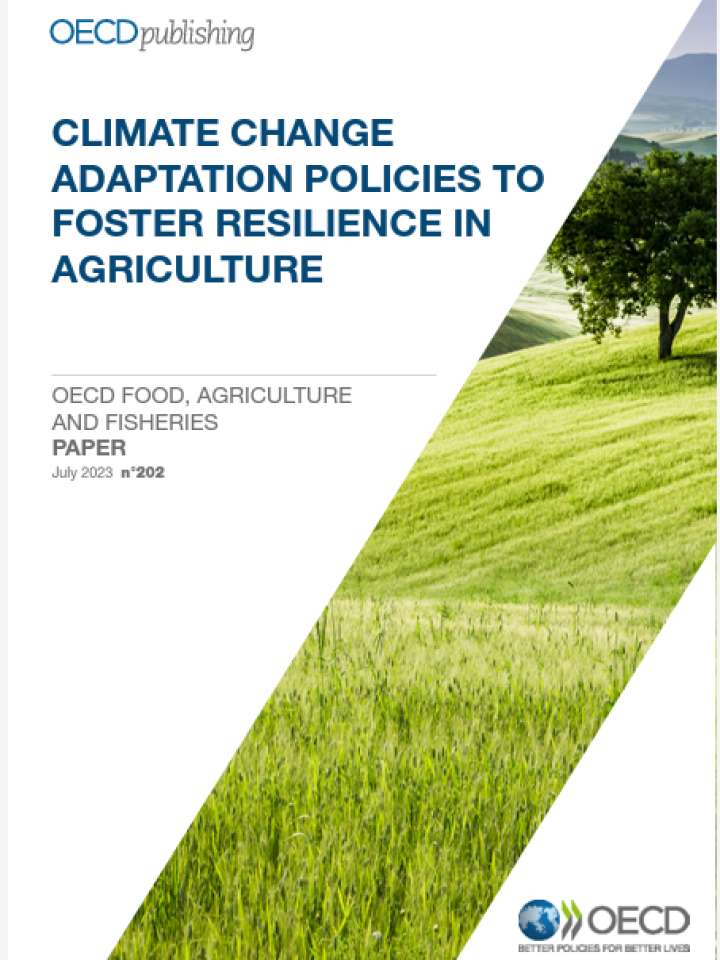Climate change adaptation policies to foster resilience in agriculture
The objective of this analysis is to identify whether and how OECD countries are investing in agricultural climate change adaptation programmes and to what extent these programmes potentially support the development of resilience within the agricultural sector.
Some of the key messages from the report include:
- Governments’ climate change adaptation programmes can strengthen agriculture’s resilience to adverse climatic events by investing in three key resilience capacities – absorptive capacity to prepare for or recover from a shock in the short run, adaptive capacity to implement incremental changes in the medium run, and transformative capacity to create a fundamentally new agricultural production system in the long run.
- Using UNFCCC reporting documents, this analysis evaluates how OECD countries view the vulnerabilities of their agricultural sectors to climate change; the types of adaptation measures and programmes they have considered or implemented; the degree to which these programmes are targeted to key vulnerabilities; and the contribution of adaptation programmes to developing resilience over the short, medium, and long run.
- Discussion of adaptation in the UNFCCC reporting documents of OECD members has increased significantly over time and ideas related to resilience have recently begun to gain traction. The extent to which the documents discuss agriculture has remained relatively stable, although the focus has shifted from an early emphasis on identifying vulnerabilities, to now incorporating evidence of specific programmes to support adaptation.
Explore further
